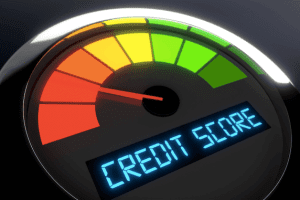Payday loans can help you to improve your credit rating, however it is not recommended that you use them for this purpose. Payday loans are short term and high risk loans and are only designed to be used when an individual is unable to stretch financially until their upcoming pay day.

What is a Payday Loan?
Payday loans are high risk loans which are designed to last the borrower until their upcoming payday. Typically, payday loans are for relatively small amounts, between $300 and $1000, however some lenders will be able to offer additional funding.
If you apply for a payday loan, bear in mind that you will be expected to repay it in full on your upcoming payday, and therefore will be provided with financial aid for between two and four weeks. If you are then unable to repay your original loan in full alongside the fee for borrowing the money, the loan will roll over into the next month with increased interest.
Consequently, if you do decide to apply for a payday loan, it is important to ensure that you will be able to repay it in full when you receive your monthly income, otherwise you may fall into a vicious cycle of being unable to make the increased repayments on a monthly basis.
What is a Credit Score?
A credit score is a measure of reliability whereby a lender can see your credit history to ensure they believe you will be capable of repaying any money lent to you. Any lender should check the credit history of a potential borrower before agreeing to provide any financial assistance, regardless of the type of loan which has been applied for.
Credit scores are based on how much money you have previously borrowed, and at what time you repaid it in full. In order to maintain a good credit score, you should have made all the repayments on your loan alongside any interest by the agreed dates.
Other factors which can impact credit scores include how frequently a you use credit and how much credit you use at a time, in addition to the length of your credit history. If you frequently approach the maximum limit on your credit card, this can decrease your credit score significantly. Borrowing less money and repaying it within the agreed timeframe can improve your credit score, and enable the lender to see that you are not dependent on loans on a regular basis.
If your credit history is long, a lender will be able to make a better assessment of whether you will be able to repay your loan. If your credit history is shorter, it will be difficult for the lender to make an assessment of your reliability which could lead to them declining your application for a loan.

Payday loans can have a significant impact on your credit rating if you fail to repay them on time.
Which Forms Of Credit Impact Your Credit Score?
Both revolving credit and installment credit can impact your credit score. Revolving credit is associated with credit cards and means you will have a set limit in place of how much you are able to borrow. Typically, there will not be a date by which you are expected to repay everything you have borrowed, as long as you make repayments on a monthly basis.
Installment credit is associated with loans such as payday loans, whereby you can borrow a fixed amount of money and will have an agreed date to repay it by. Types of installment loans also includes mortgages and student loans. Both types of loans can impact your credit score, so it is important to check the requirements on any money you plan to borrow beforehand to avoid missing any potential repayments and decreasing your rating.
Does Using Payday Loans Improve Your Credit Score?
Using a payday loan can improve your credit score if you take out a loan and pay it back on time alongside the fee for borrowing the money. Credit scores are designed to demonstrate whether or not you are a reliable borrower, so repaying loans on the agreed dates can demonstrate your reliability.
In spite of this, payday loans are not designed to help you improve your credit score. They are designed to finance any emergency payments that you had not previously budgeted for, and should not be used for frivolous spending or any unnecessary purchases. They should also not be used to repay any alternative debt.
Was this article helpful?
Justine is a full-time writer with lots of expertise and a wealth of experience in the financial world. In particular, she specializes in household income and consumer finance across the United States. Follow her articles for useful advice and top tips, guides on how to save money and lots more.
